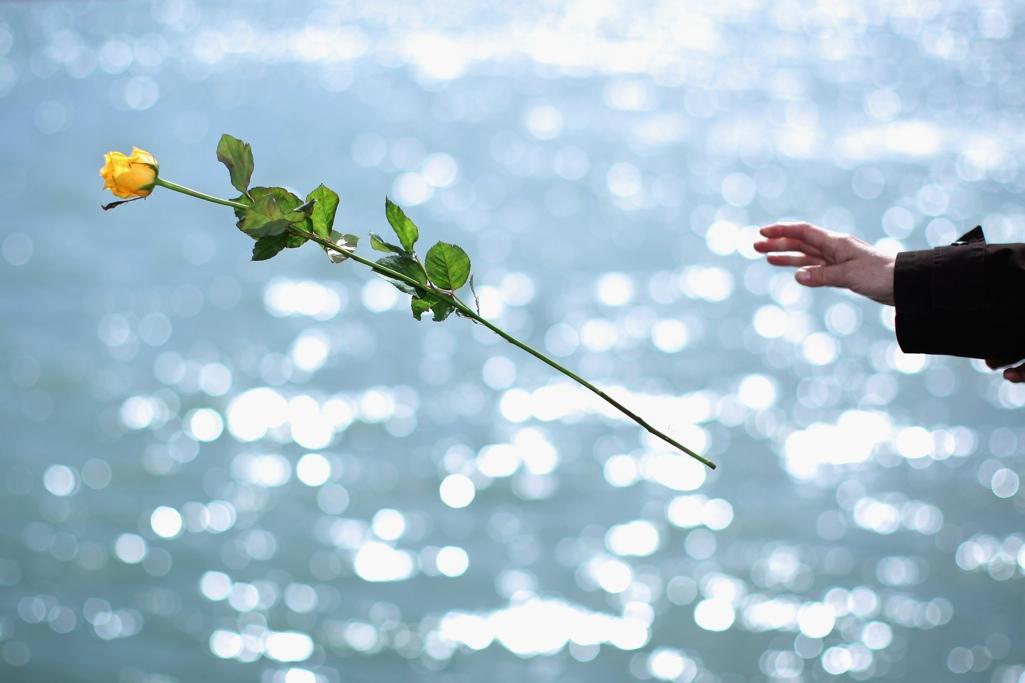Titanic legacy still lingers in tiny Irish town
Remembering the victims in Southampton, England.
COBH, Ireland — This tiny Irish town was the last port of call for the Titanic on its infamous maiden voyage.
This week, it’s preparing to commemorate 100 years since the ship docked in the town. The month-long festival has drawn visitors from around the world, but sad memories remain — and serve as a reminder of Cobh’s present-day economic woes.
One hundred and twenty-three people boarded the Titanic here on April 11, 1912. Of those, only 44 survived the ship's collision with an iceberg four days later.
Some would go on to be leaders in American business and society. Others suffered from alcohol abuse and spent their lives in squalor.
Cobh (pronounced “Cove”), sprung up around a growing emigrant trade that engulfed this southern Irish town in the 19th century.
Read more: Titanic memorial marks 100-year anniversary of fateful voyage (video)
At the time the Titanic made its fateful journey, the Commodore Hotel was the town's main meeting point for emigrants leaving Irish shores. At the hotel's entrance today, pieces of dated canvas and leather luggage sit in stacks, symbolizing the town's longtime association with departure.
Over 2.5 million Irish men and women have left the country for the US, Canada and beyond through its deep port waters.
Jessica Doherty, 22 and a receptionist at the hotel, is leaving Ireland for Australia next month.
"A lot of my family and friends are in Perth so I will stay there for a year or maybe longer," she says, adding that five close friends and her partner are already in Australia.
Ireland's current economic crisis has hit Cobh, a town of about 10,000 people, badly.
Read more: Waves of Irish immigrants to Australia keep coming
'Wakes' or going-away parties, where family and friends gather to see off the latest young Irish man or woman leave the country in search of employment, occur regularly. Australia, Canada and the UK remain the chief draws for Ireland's young emigrants.
Like most towns in Ireland today, pubs and betting shops dominate Cobh's center. Many shop fronts here are derelict or empty and houses are paint-stripped.
At Ryan's Bar, a popular local drinking and meeting point in the town center, paintings of ships adorn the premises' walls. At this dated 1970s-styled pub, patrons are mostly middle-aged; the young are no longer around.
"Cobh is like everywhere else in Ireland," says Michael O'Halloran, the pub's owner. "It has suffered greatly from emigration, especially of the young."
O'Halloran, a Cobh native, says that today's recession is affecting the local population far worse than those in the past, particularly during the 1980s, when unemployment reached almost 20 percent of the national labor force.
Read more: Aussie ad has Irish charging discrimination
"Back then we had steel, iron and industrial fertilizer factories nearby and they were major sources of employment; they employed thousands of workers until the 1980s. Now they're all gone, they've all closed."
Most of the people who have left Cobh today are in their early twenties, he says, leading to a substantial brain drain in the town.
"In past economic downturns young people could get jobs as tradesmen but because the housing boom caused this recession there is nothing for carpenters, builders and laborers either," he says.
Today a local supermarket and the Commodore Hotel itself are the town's two chief employers, and there is no sense among people that this recession may end any time soon.
Before leaving the pub O'Halloran announces: "If you can believe it, 160 youngsters from Cobh got together in Sydney for St. Patrick's Day last month. This shows you how many have left — and this is just a small town."
Today Cobh is mobbed with onlookers and tourists from around the world soaking up history and taking part in the Titanic hype.
At the town's cathedral, high on the cliff overlooking the port earlier this week, workers were busy readying flower arrangements and sound systems ahead of the arrival of the Irish president and dozens of other dignitaries and celebrities.
It is clear the festival is a major economic boon for the town.
But though this comes as a welcome respite, the hype and television cameras will soon leave. And Cobh's long-term economic woes, like the rest of Ireland's, seem set to stay.
